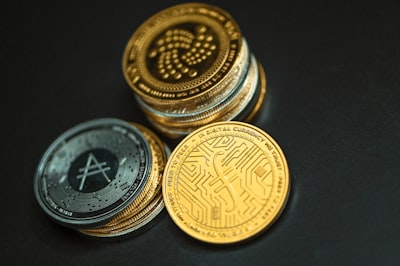
Strike - a Bitcoin bills corporate and remittance app - introduced Friday that it's now available for obtain to over 3 billion folks international, including... #bitcoin #srilanka #globalsouthspeaking #miami #jackmallers #bhutan #brazil #ecuador #guatemala #hondurasOriginal article
Bitcoin Wallet Strike Goes Global
Strike, a popular Bitcoin wallet and remittance app, has made a major expansion by making its services available to over 3 billion people worldwide. This expansion is specifically targeting countries in the Global South, highlighting its commitment to providing access to financial services to underserved populations.
The Global South, also known as the developing world, has long faced challenges when it comes to accessing modern financial infrastructure. Many people in these regions are unbanked or underbanked, meaning they have limited access to traditional banking services. By introducing Strike in these regions, the Bitcoin company aims to bridge this gap and enable individuals to participate in global financial transactions easily and securely.
Bringing Financial Inclusion to the Global South
By expanding its services to countries like Sri Lanka, Bhutan, Brazil, Ecuador, Guatemala, and Honduras, Strike is providing an opportunity for millions of individuals to gain access to a convenient and efficient means of sending and receiving money. This is particularly important for those who rely on remittances, as traditional remittance services can be costly and time-consuming.
With Strike, users can transfer money instantly and at a low cost, bypassing traditional intermediaries. This has the potential to significantly reduce remittance costs and increase the amount of money that reaches the intended recipients. Additionally, Strike's integration with the Bitcoin network allows users to leverage the benefits of decentralized finance, such as increased privacy and financial sovereignty.
The Potential Impact on Society and Markets
The expansion of Strike's services to the Global South has the potential to have a profound impact on society and markets in these regions. Here are some key ramifications:
1. Financial Inclusion:
By providing access to modern financial services, Strike enables individuals in the Global South to participate more fully in the global economy. This can lead to increased economic opportunities, poverty reduction, and overall development in these regions. It also empowers individuals to have more control over their finances and improves their quality of life.
2. Remittance Market Disruption:
The remittance market is a significant source of income for many individuals in the Global South. However, traditional remittance services often charge high fees, making it expensive for individuals to send money back home. Strike's low-cost and instantaneous transfers have the potential to disrupt this market, providing a more affordable alternative for remittances.
3. Adoption of Cryptocurrencies:
As Strike leverages the Bitcoin network, its expansion could lead to increased adoption of cryptocurrencies in the Global South. This, in turn, can drive the broader acceptance and use of digital currencies, transforming the way people transact and store value. It also presents an opportunity for individuals in these regions to hedge against inflation and currency volatility.
Frequently Asked Questions
What is Strike?
Strike is a Bitcoin wallet and remittance app that allows users to send and receive money instantly and at a low cost. It leverages the Bitcoin network to enable fast and secure transactions, with a focus on financial inclusion and accessibility.
Why is Strike targeting the Global South?
The Global South faces challenges in accessing modern financial infrastructure and services. By expanding its services to these regions, Strike aims to provide financial inclusion and empower individuals to participate in the global economy.
How does Strike benefit users in the Global South?
Strike's expansion to the Global South provides individuals with a convenient and affordable means of sending and receiving money. It bypasses costly intermediaries and traditional remittance services, reducing costs and increasing the amount of money that reaches the intended recipients.
What are the potential risks of using Strike?
While Strike offers many benefits, including fast and low-cost transactions, it's essential to understand the risks associated with using cryptocurrencies. These include price volatility, regulatory uncertainties, and the potential for scams or hacking. Users should exercise caution and educate themselves about cryptocurrency best practices.
Conclusion
The expansion of Strike's services to over 3 billion people in the Global South represents a significant step towards financial inclusion and accessibility. By providing an affordable and efficient means of sending and receiving money, Strike has the potential to transform the lives of millions of individuals in these regions. It also highlights the power of cryptocurrency and blockchain technology as tools for empowering individuals and driving positive change in the world.
Original article